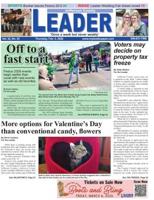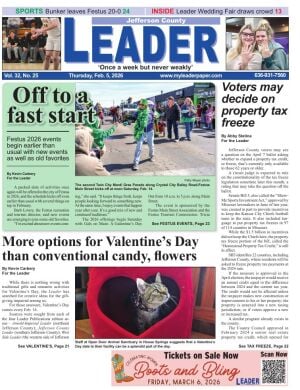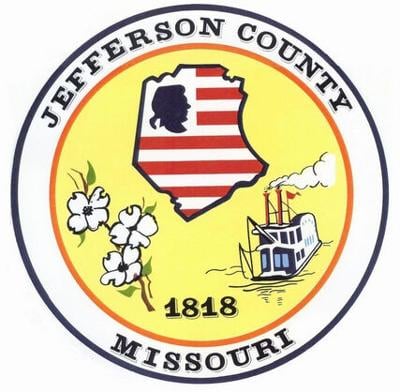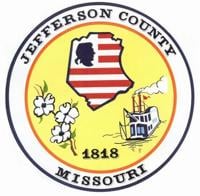Jefferson County voters will see a 5 percent hotel-motel tax proposal on the Aug. 6, 2026, ballot.
The Jefferson County Council voted to amend its earlier proposal for the ballot measure, switching the proposed election date from April 7, 2026, to the August primary election.
The council also amended the ballot language to explicitly say vacation rental properties, such as Airbnbs and VRBOs, will have to pay the tax if the measure is passed.
The council voted 6-1 on Sept. 8 to make those changes, with Councilman Charles Groeteke (District 4, Barnhart) voting against the measure. Then, the final vote on the matter was taken Sept. 22, with Groeteke again casting the lone dissenting vote.
A hotel-motel tax, also called a bed tax or a transient tax, targets visitors or travelers, charging them the tax when they stay at a hotel or motel in the city or county that collects the tax revenue. St. Charles County, for example, collects a 5 percent tax charged on room fees at hotels and motels in that county; St. Louis County has two fees on lodging facilities – a 3.75 percent convention and tourism tax benefiting the Convention and Visitors Commission, and a 3.5 percent convention and sports tax used to pay for tourism infrastructure, such as the Dome at America’s Center.
Councilman Scott Seek (District 5, Festus) proposed the tax measure and said the proceeds would go to the Jefferson County Tourism Commission, the county’s Destination Marketing Organization for tourism marketing.
As the county’s DMO, the commission is eligible for matching grants from the Missouri Division of Tourism. The money can be used on billboards, radio and TV ads and geofencing promoting Jefferson County tourism.
“There are two things I’m happy about,” Seek said. “We have an opportunity to have a bed tax that will help fund the Jefferson County Tourism Commission, and that allows the state to put its matching grant money into Jefferson County. The second thing I’m really happy about is that now the voters of the county can decide. The council makes a lot of decisions, and doesn’t really let the voters be a part of it. This is where true democracy gets to occur.”
The amended ballot language reads, “Shall Jefferson County, Missouri, levy a tax of 5 percent on each sleeping room occupied and rented by ‘transient guests,’ (person or persons who occupy a room or rooms for 31 days or less, as defined by RSMo. 67.1000), of ‘hotels and motels’ (defined as an establishment that provides lodging and/or parking or rooms that are accessible to an outdoor parking area, provides meals, entertainment and various personal services for the public to include but not limited to hotels, motels, bed and breakfasts, inns and commercially operated short-term rentals such as vacation homes, condominiums or rooms listed on platforms like Airbnb or VRBO, etc.,) located in Jefferson County to exclude any hotel and motel in any municipality within the county that already imposes a transient tax under RSMo. 67.1000, or any other transient tax under Missouri law, where proceeds of which shall be extended solely for funding a convention and visitors bureau?”
Arnold, Pevely and Festus are the only cities in the county that currently impose a bed tax on hotels and motels.
According to county documents, the measure would require a simple majority vote from Jefferson County residents for approval. Residents of Arnold, Pevely and Festus will not vote on the measure because Missouri state statutes do not allow for the stacking of bed taxes, Seek said.
Groeteke said he voted against placing the measure on the ballot because he was concerned about the unknown mechanics of collecting the tax. He also voted no on the proposal during the council’s preliminary vote at the Aug. 25 meeting.
“I have concerns on how much revenue it’s going to generate and how much it’s going to cost the county to enact it,” he said. “How the tax will be collected remains an issue. I don’t know who is going to collect it, how it will be handled, how much it will cost to handle it and run it.”
Seek said it’s “not the council’s place to get in the weeds” in terms of how the sales tax revenue would be collected, adding that the county administration would follow the established state statutes on collecting the tax.
Groeteke said not many businesses in unincorporated Jefferson County would qualify under the measure’s definitions.
“The truth of the matter is, I don’t see why (the tax) is necessary,” Groeteke said.
Last year, when Seek unsuccessfully tried to get the measure on a ballot, he estimated that the countywide bed tax would bring in an additional $119,000 a year for the tourism commission from a single hotel in an unincorporated area of the county – the Holiday Inn Timber Creek Resort near De Soto. As the county grows and more hotels are constructed, tax revenue would increase, he added.
“This is a great thing for us – almost a no-brainer,” Seek said. “We have plenty of great things for people who do not live in Jefferson County to come in and be a part of. They bring their money to us; they bring their commerce; and then drop that money off in Jefferson County, and they go back home. (The hotel-motel tax) creates a flow of money into Jefferson County, and we don’t have to reach into our own pockets to make the payments on that type of infrastructure. Someone else is helping us do that.”




